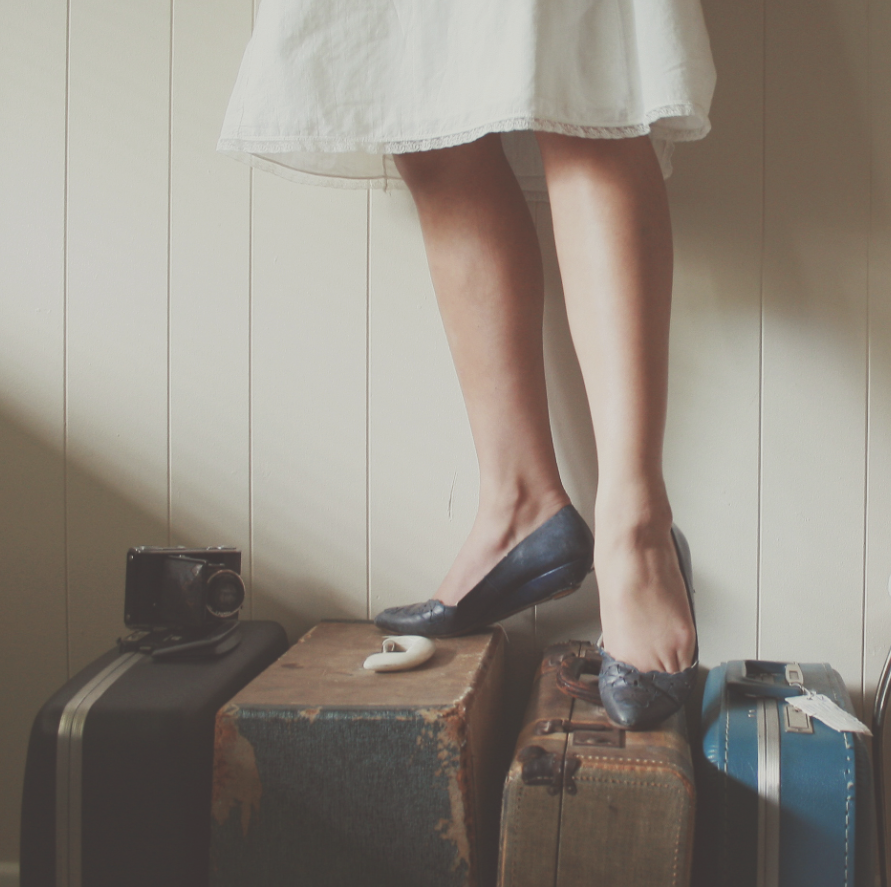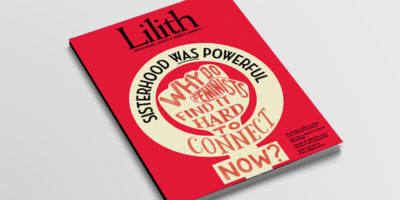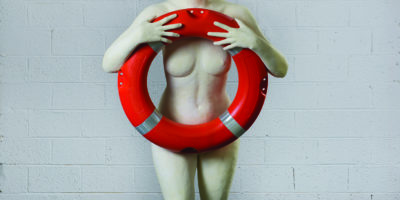
Panic in a Suitcase
A daughter decodes her parents’ baffling nostalgia for their bad Old Country.
In the beginning was the nostalgia. That is to say, it started with the end. With memories, anecdotes, old photographs, wafts, vapors. That was the part of Odessa that was mine — the smoke. My family produced no shortage of nostalgic exhaust and I got high off the fumes. Mealtimes, car rides, strolls to Coney Island were just an excuse to reminisce about a time that was more authentic, exciting, frightening, funny, devastating, and bizarre than my own. We fed each other’s longing, reinforcing the myth of our native city, of the golden age, which ended, it seemed, not even on the day of our departure, but the day of my birth. What luck!
And yet, what luck! I’d been whisked away from a bleak fate in Ukraine and brought as a fledgling to the land of opportunity. My parents did the work — I tagged along for the ride. While they struggled to learn English and were never to lose their thick accents, I picked up the language in no time (but also never fully shed the accent, out of sympathy, let’s say). They were hemmed in by limitations. For me, the sky was the limit. I had to be grateful. But an abstract stash of opportunities means little in the face of a stash of photographs of my parents and their giant group of friends lounging around every corner of a resplendent, lazy Odessa. My reality paled in comparison. I knew I could never recreate here, in this massive city, in our fractured time, what they had there, so I didn’t bother; I mourned what I hadn’t even had the privilege to lose, and obsessed, trying to hear every story, get every detail.
If we were in thrall to the past, so was everyone around us. In our neighborhood, nostalgia was the norm. Though we’d already been in America for two decades, we still lived in the ex-Soviet enclave of Brighton Beach, Brooklyn: Russian was spoken on the street, Russian slop sold in the shops, Speedos the standard on the beach. We were running into the same people on the boardwalk that we would’ve run into on the boulevard in Odessa. It was charming but also heartbreaking, and more than a little maddening in the instances when no attempt was made at learning the language, no interest shown in anything outside the bubble.
My parents tried to see as much outside of the bubble as possible, using their weekends to partake of the city’s cultural opportunities and their precious vacation days to travel far and wide. And yet the daily reality was that they were working like dogs, tired all the time, stressed. When you immigrate, the dream of the old country is born, while the dream of the new one dies, even if you end up achieving it. They were still friends with the same group from Odessa, and they still got together on weekends, but in an obligatory fashion. They no longer laughed late into the night. New York life separated people. Isolated them. No one argues that the advantages of immigration are great, but no one wants to weigh them against the disadvantages either. Was my uncle, who hadn’t immigrated, so much worse off? He was living on the dacha that had swelled to celestial proportions in our imagination, eating fruits and vegetables from our Eden. My grandfather Skyped his son daily (from the computer in my bedroom) and made him give an elaborate account of everything that was going on there, in the land we technically left behind but clung to more than ever.
Such musings weren’t for the sharing. Nostalgia must remain platonic. It has no bearing on real life, just as real life has no bearing on it. If I overstepped the boundary, I got a different kind of earful: the horrors they had lived through, the hunger, the oppression, the anti-Semitism, the fear. This was all true, of course. But the truth accommodates all sorts of contradictions. My family had earned the right to bemoan that dreadful time, and also to miss it. They had a blank check for complaining, and a bloated savings account of memories. In this sense — and really all others — my bank account was broke. I had nada.
It was in this mental climate that I embarked on my novel Panic in a Suitcase. I didn’t know what I was doing. At the heart of the book, and perhaps at the heart of my becoming a writer, was an immense sense of helplessness. I’d done more than my fair share of listening. In fact, I was all listened out. The stories my family had poured into me over the years were putting undue pressure on my vital organs. Writing was a way of letting them out, and the schizophrenic sentiment that went along. Since I had no voice of my own, I began by channeling my family’s; hence the beginning of the book sounds like a polyphonic immigrant mongrel. In the process, I had to find my own voice, create my own story, which is also what I had to do in my life — overcome the sensation that my family’s story was more real, or more interesting, or more earned, than my own. I had to start living for myself, and the only way I knew how was to write myself into existence. For better or worse I’ve never been able to separate the two — writing is life.
Yelena Akhtiorskaya was born in Odessa in 1985 and raised in Brighton Beach, Brooklyn. Her writing has appeared in n+1, The New Republic, and elsewhere. Panic in a Suitcase was a finalist for the 2015 Sami Rohr Prize for Fiction. A version of this essay appeared in Jewish Book World.



